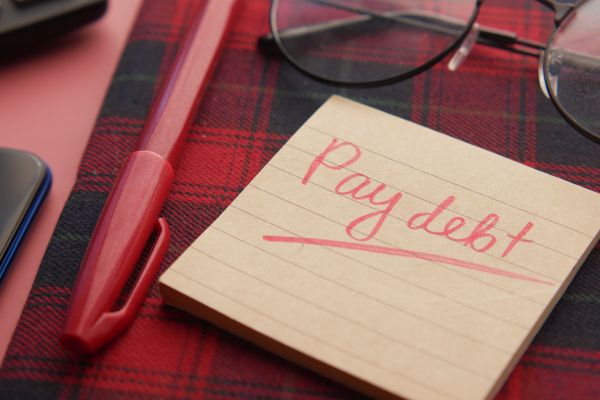Managing and Paying Off Debt in Malaysia
Taking a loan is one of the ways for most of us to be able to afford buying a house, a car or even studying abroad. Having debt is not a bad thing per se, as it does help us to live more comfortably. In addition, paying off debt in a timely manner would also help your credit score. In this article, we discuss some of the ways you can pay off debt!
How To Pay Off Your Loans / Debt
1. Debt Consolidation Loan

A debt consolidation loan is a loan that you take to pay off the other loans. You will only need to pay back this single loan with one fixed interest rate. Multiple loans have different interest rates that can be difficult to keep track of. Furthermore, most interest rates are not fixed rates.
Applying for a debt consolidation loan and keeping only one credit card is one of the best ways to save your money. Your overall repayments will be extended to a prolonged time span and at a reduced interest charge. Decreased monthly costs would improve your cash flow, enabling you to repay loans while maintaining a cash reserve.
2. Balance Transfer
A balance transfer for credit cards in Malaysia is the transfer of an outstanding balance from one credit card to another. Individuals may wish to balance transfer to another bank’s credit card with a considerably lower interest rate and better card benefits.
To entice consumers, some banks’ credit cards remove balance transfer costs, which normally run between 3% and 5% of the transferred amount. They also frequently provide an introductory or promotional tenure of 6 or 12 months during which no interest is charged on the transferred amount.
In Malaysia, banks will tack on a one-time fee to the overall transfer sum and add it to the monthly payback total. Even if the bank imposes a cost of 3% of the total balance transfer sum, it is still a small, set sum compared to the tiered interest charge if you didn't utilize a balance transfer. This payment doesn't accumulate over time because it isn't an interest charge. Occasionally, balance transfer promotions will provide 0% interest and 0% fees from the bank.
Ways to Manage Money To Help With Debt Pay Off
1. Cut Down On Your Expenses

Keep a log of your spending in detail. It's practically difficult to figure out where to minimize costs if you don't know where your money is being spent. To be clear, everything should be included, including the RM1 you spent on a beverage. Use a journal, notebook, or mobile banking app in Malaysia. If you do this for a few months, you will have data that shows you where most of your money goes. With this information, you can plan how to reduce costs in that area. From there, you can funnel in more money to pay off your debts and loans.
Where possible, try to reduce the amount of money you are spending in a month. Get rid of unnecessary subscriptions and find cheaper alternatives. Making a shopping list in advance and sticking to it is a tried-and-true technique to reduce the amount of money you spend at the grocery store. Avoid the urge to make an impulsive purchase when you arrive at the store. It will be best if you structure your list around any sales or promotions the store has publicised.
2. Control How Many Loans You Take On
Examining your financing choices carefully to make sure you get the best deal is one of the best methods to prevent unnecessary debt. Before committing to any financial debt, evaluate the offers to find the best terms and rates. Be mindful of how much you borrow and how much you owe the bank. Due to interest charges, you may be borrowing more than you can afford and that may cause huge financial difficulty sooner or later.
Conclusion
To better manage your debt, you can try to apply for a debt consolidation loan. It is one way to oversee the total amount of all your debts. To apply for a loan is not something that you should take lightly. Be careful with how much you borrow and be sure to pay back on time. Make sure you calculate the total loan with interest rate charges before you agree to any loan payment. It is important to understand your financial capabilities and priorities before anything else.